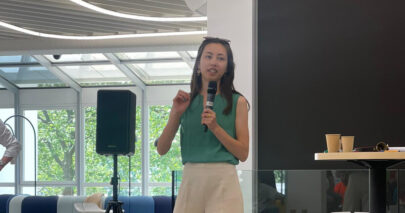
Switzerland passed reforms collectively referred to as the Distributed Ledger Technology (DLT) Act in September 2020. Those parts of the DLT Act that enable ledger-based securities to be introduced entered into force on 1 February 2021.
Part of this act introduces the newly defined uncertificated register securities or “Registerwertrecht” – digital securities that can be transferred without banks or brokers, unlike traditional securities. What implications does this new category of security have for issuing and trading digital assets?
This new formal type of security is important because it creates legal certainty around the ownership and transfer of those tokens in particular that (a) represent a debt claim against a third party (e.g. right of interest payments against the issuer of the token) or (b) a membership right in the sense of the company law and can therefore qualify as a security. These “counterparty tokens” include tokens that are not pure payment tokens (such as cryptocurrencies like Bitcoin and Ethereum) or pure utility tokens.
Legal certainty is important in accessing the full potential of blockchain technology and allowing Switzerland to retain its position as an attractive destination for issuing DLT-based securities.
Under Swiss law, claims can only be transferred in writing. This means that an assignment contract theoretically needs to be hand-signed or signed by way of a digital signature. As it stands, if a claim token is transferred without one of these, then the transfer is de facto not valid or legally binding. However, this additional administrative layer is useless in the context of automated DLT applications.
Under the new law, these claim tokens can be issued and transferred as uncertificated register securities within the token’s register and DLT system without the anachronistic signing procedure. This legal framework provides further certainty regarding the valid transfer of ownership of such securities and puts Switzerland ahead of most jurisdictions.
Might a company with ordinary equity shares listed on the Swiss Stock Exchange and wanting to issue digital equity securities face any legal or administrative challenges?
The company would need to amend its articles of association to include uncertificated register securities which would require shareholder consent and the related formalities such as certification by a public notary.
It is basically possible for a company to issue securities using different methods (such as traditional physical share issuance and issuance of uncertificated register securities) whereas a record of shareholdings on the blockchain is considered a valid shareholder register. However, the company would ideally need to somehow keep a consolidated overview of the securities maintained on different shareholder registers.
DLT trading facilities have been introduced as a new type of exchange for digital assets, which allow trading by private clients, trading of cryptocurrencies (as a side business to the trading of DLT securities) and on-chain settlement. However, central counterparties still play a role, in terms of clearing and supervision. Is there still a way to go before we see a fully decentralized cryptocurrency platform operating in Switzerland?
At the moment, we’re only somewhere in between the traditional world and what will probably prove a more decentralized world with this new legislation – and that’s key.
The new law does not provide a legal basis for fully decentralized facilities. The principle is to maintain an entity that controls the DLT trading facility and that is accountable if something goes wrong, and that means pushing the new technology into the existing legal framework.
These DTL trading institutions are traditional institutions in the sense that they are incorporated companies with a license from the regulator to operate a DLT trading facility. The setup is still conventional, at least in terms of licensing requirements. The company will need to demonstrate to the Swiss Financial Market Supervisory Authority (FINMA) that it has sufficient safeguards in terms of capital buffers and operational structures to deal with onboarding and trading, including compliance (AML, KYC).
The new part is the way in which trading takes place by using DLT securities. Additionally, there are newfound implications in terms of combining and automating clearing, settlement and payment. Everything else is fairly traditional.
The new regulatory framework for custody providers clarifies the treatment of digital assets in the event of custodian bankruptcy (in favor of clients). Does this improve custody services from a client or intuitional perspective?
The new DLT law clarifies that in the event of the custodian becoming bankrupt, digital assets do not become part of the bankruptcy estate but are directly allocated to the client under certain circumstances. This is a great advantage for the client as counterparty risk is largely eliminated.
There is a requirement that the assets be allocated to a certain customer and that they have been issued, e.g. based on DLT. However, it’s not necessary to record the allocation to a customer on the blockchain itself. This means that institutions can hold digital assets in omnibus accounts, which is beneficial for the institutions from an operational and cost perspective. In extreme cases an Excel table could theoretically suffice for the allocation of the digital assets, although it should not be expected that such a solution would be accepted by FINMA or the auditor.
It is also very positive for the institution because the asset is not held on its balance sheet and as such does not attract liquidity or capital requirements.
The SEC action against Ripple Labs (the company behind the XRP token) has brought to the fore the discussion of what constitutes a “digital asset security” in the US. How important is the distinction between cryptocurrencies and securities and how are these considered in Switzerland?
In the US, the control of XRP by Ripple led to the SEC’s legal action on the basis that XRP is a security.
From a Swiss legal perspective, the use of the token is the defining factor. If functionality is limited purely to payments, the token will generally not be deemed a security in Switzerland. If the cryptocurrency does not comprise a right towards a third party, it will generally not qualify as a security in the legal sense. Even if there are voting rights attached to the token, for example to determine changes to the protocol, it is still unlikely that the token would be classified as a security; it is more likely to be considered a utility token.
The classification of Bitcoin as a financial instrument has also been highly debated in different jurisdictions. However, in Switzerland it is clear that Bitcoin and other payment tokens are private means of payment and therefore not securities.
These clear-cut definitions make issuance of cryptocurrencies attractive in Switzerland as they provide legal certainty. In the US, for example, the authorities are much quicker to consider a token to be a security that is a risk.
In the event the token does not qualify as a security or financial instrument, there are far fewer legal and regulatory requirements from a financial market perspective. For example, a securities dealing license is required when dealing in securities, which is not the case when purely dealing in cryptocurrencies in Switzerland.
In addition, institutions that manage or provide advice on financial instruments have to meet further requirements in terms of testing the appropriateness and suitability of the product for a client.
How is DLT regulated in Switzerland and how does the process of changing laws and regulations work? Is it significant that Switzerland amended existing federal acts as opposed to creating new legislation?
Unlike Lichtenstein, Gibraltar or Malta, Switzerland doesn’t have any specific legislation regarding DLT.
The new act entering into force is actually not a self-contained law and is largely formulated in a technology-neutral manner. It is, in fact, a blanket act that changes existing laws, including making dedicated changes to civil law (in respect of securities), financial market infrastructure law (DLT trading facility), the Banking Act and bankruptcy regulations.
Personally, I think that’s a good way to approach it because we don’t know which future technology innovations will come up. If we create a new law specifically for existing innovations, it will potentially need to be constantly adapted. The formulation of the changes should be as principle based as possible, to accommodate future changes easily.
Also, having a single self-contained law becomes a challenge when you need to implement it. If there isn’t sufficiently tight linkage to the existing legal framework, questions will arise and void spaces will exist, at least until practice and case law catches up.
Interview conducted by Stephanie Hurry, Olabisi Ayodeji, Matteo Conti and Emon Goswami
PwC’s Banking, Fintech and Blockchain legal services include regulatory guidance and legal advice for established financial institutions and start-ups alike.
This is the 11th edition of Fintech Chain Mail. The full series can be accessed here.


